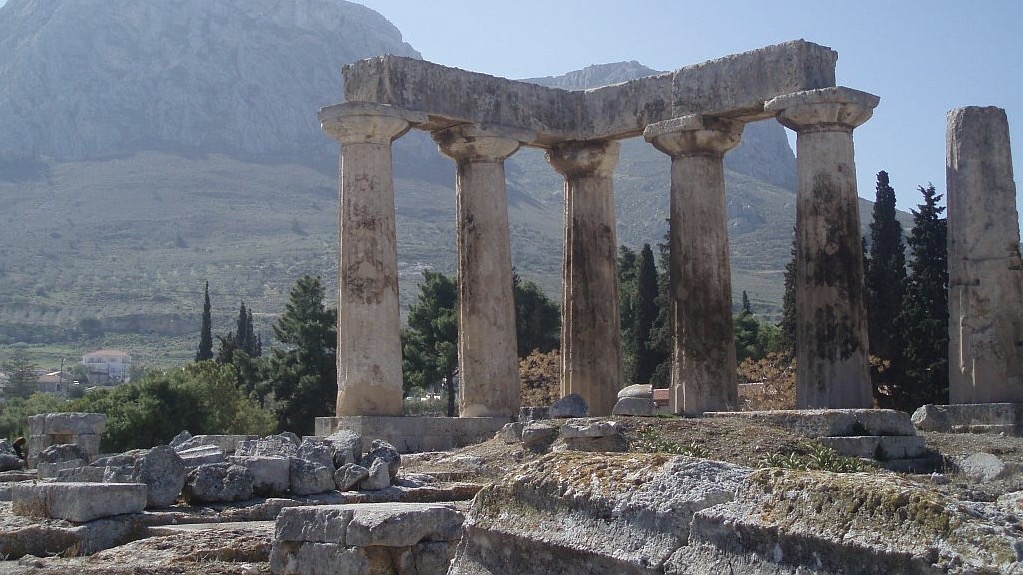Study abroad is particularly recommended for classicists, since we focus on languages, literatures, and cultures that originated in the ancient Mediterranean world.
Undergraduate majors in our department, even those with double majors and minors, frequently study abroad for a semester or for part of a summer: the most popular destinations tend to be Italy, Greece, and England. The key to adding this kind of experience to your degree is advance planning, so we are glad to start the conversation here! Your next stop should then be the CUAbroad office for even more ideas about destinations and detailed logistical assistance.
-
How do I get started?
Visit the undergraduate advisor to discuss your interests and look over your transcript to see how studying abroad will fit into your curriculum. Our department encourages all students to think about these opportunities, so your advisor will probably invite you to begin planning even while you are still a freshman.
After consulting with the department, your next stop should be the CUAbroad office, where you can learn more about programs and about Catholic University policies and procedures.
-
Where can I go?
Two programs affiliated with Catholic University are especially relevant for our department's undergraduates and minors; the CUAbroad Office facilitates applications to them.
- Rome: Catholic University has its own university program in Rome.
- Oxford: Catholic University is affiliated with the Oxford Study Abroad Programme (OSAP) in England. Consideration for this honors-level program is highly selective.
But classicists do not necessarily have to study in the Mediterranean or in England. Catholic University also has programs in a wide variety of other countries.
-
Can I study abroad during the summer?
Absolutely! Summer study abroad is an attractive option for many undergraduates. It often provides an intensive, condensed experience over the course of several (generally two to seven) weeks; it can complement the regular pursuit of the Catholic University degree during the academic year; and, in many cases, it need not provide highly specific transfer credits to assist in the progression towards graduation.
As with all study abroad proposals, summer study abroad should be discussed with and approved by the undergraduate advisor well ahead of time, particularly if you want or need to transfer credit for such summer study back to Catholic University.
-
Can I go on an archaeological dig?
Absolutely! Working as a member of an archaeological excavation offers a different type of study abroad experience for the student of classics. It presents the opportunity to learn about this important area of the discipline firsthand, in a way that cannot be experienced in the classroom, and offers hands-on training in the identification, analysis, and interpretation of ancient artifacts. In return, excavation demands physical stamina, flexibility in the acceptance of living conditions, long work hours, and the willingness to forsake extensive personal travel in return for the chance to share in the discovery of new things and the acquisition of new knowledge.
There are many archaeological excavations that accept undergraduate student 'volunteers'; nearly all of them charge fees for room and board, and some for participation as well. Some excavations are archaeological 'field schools' that offer organized and purposeful training in investigative, recording, and interpretive techniques; others more closely emphasize the direct operation of the excavation itself.
One way to find an excavation to join is to explore the Archaeological Fieldwork Opportunities Bulletin (AFOB), a database maintained by the Archaeological Institute of America (AIA), one of our professional organizations. Because the AIA does not vet entries on this list, however, it is important to consult with a faculty member when you are considering an individual dig.
-
What academic requirements should I bear in mind?
Detailed requirements regarding minimum GPA and other academic regulations are available from the CUAbroad office. However, it is also extremely important to ensure that you will remain on track for graduation if you pursue a semester abroad. This means selecting courses carefully and in conjunction with the undergraduate advisor before, during, and after your time away from Catholic University.
-
What about finances?
Sometimes studying abroad can actually work out to be more affordable than staying on campus! It is worth doing the math to discover whether your major expenses may remain the same or even decrease--bearing in mind, of course, that you will probably spend more on transportation and on special experiences than you do while you are here at Catholic University.
You might also like to consult the Catholic University Office of Financial Aid to learn more about what effect studying abroad may have on any aid you are already receiving. Some of the support you have may be applicable to the international experience you are considering.
Finally, CUAbroad maintains a detailed website on financing education abroad.
Study Abroad Resources for Classicists
- CUAbroad Office
110 McMahon Hall
Phone: 202-319-6010
Email: cua-cuabroad@cua.edu
CUAbroad website

